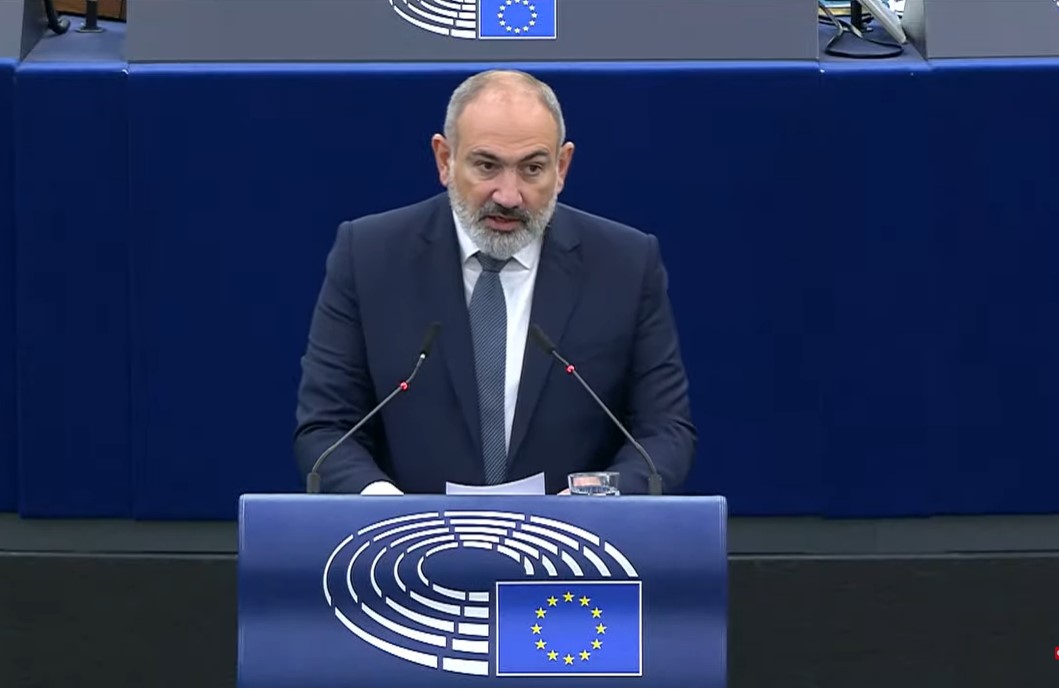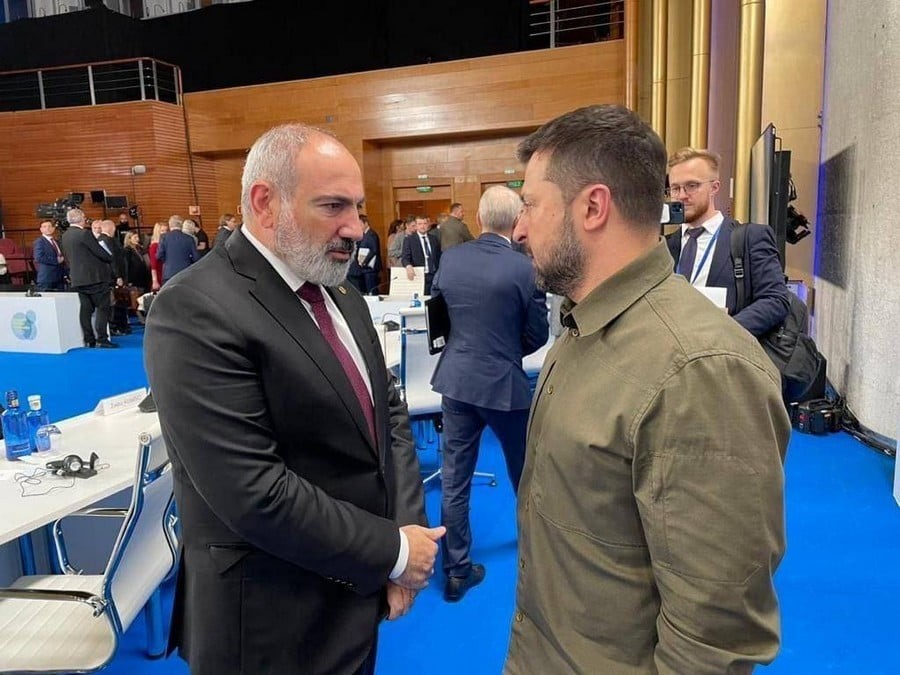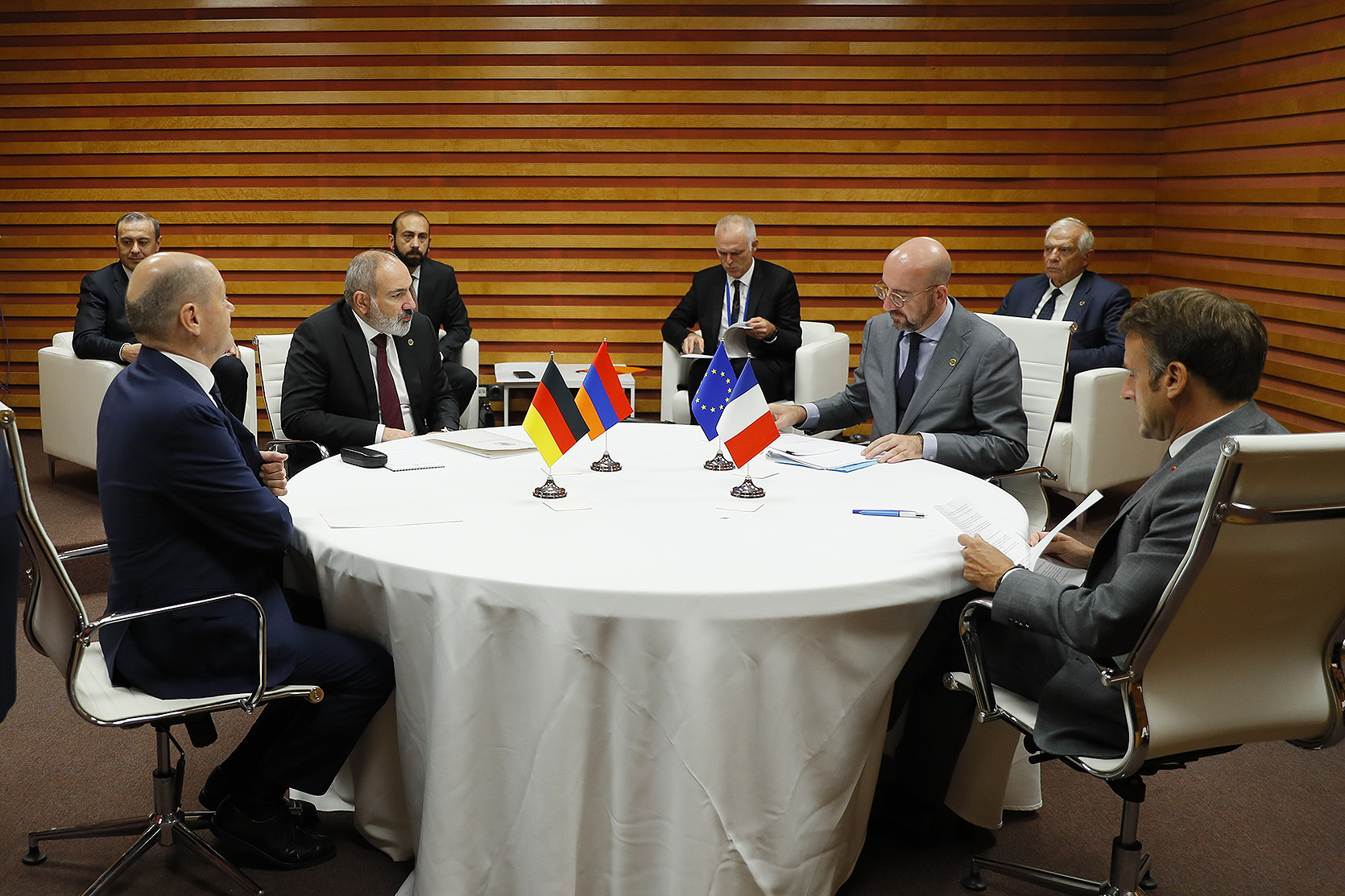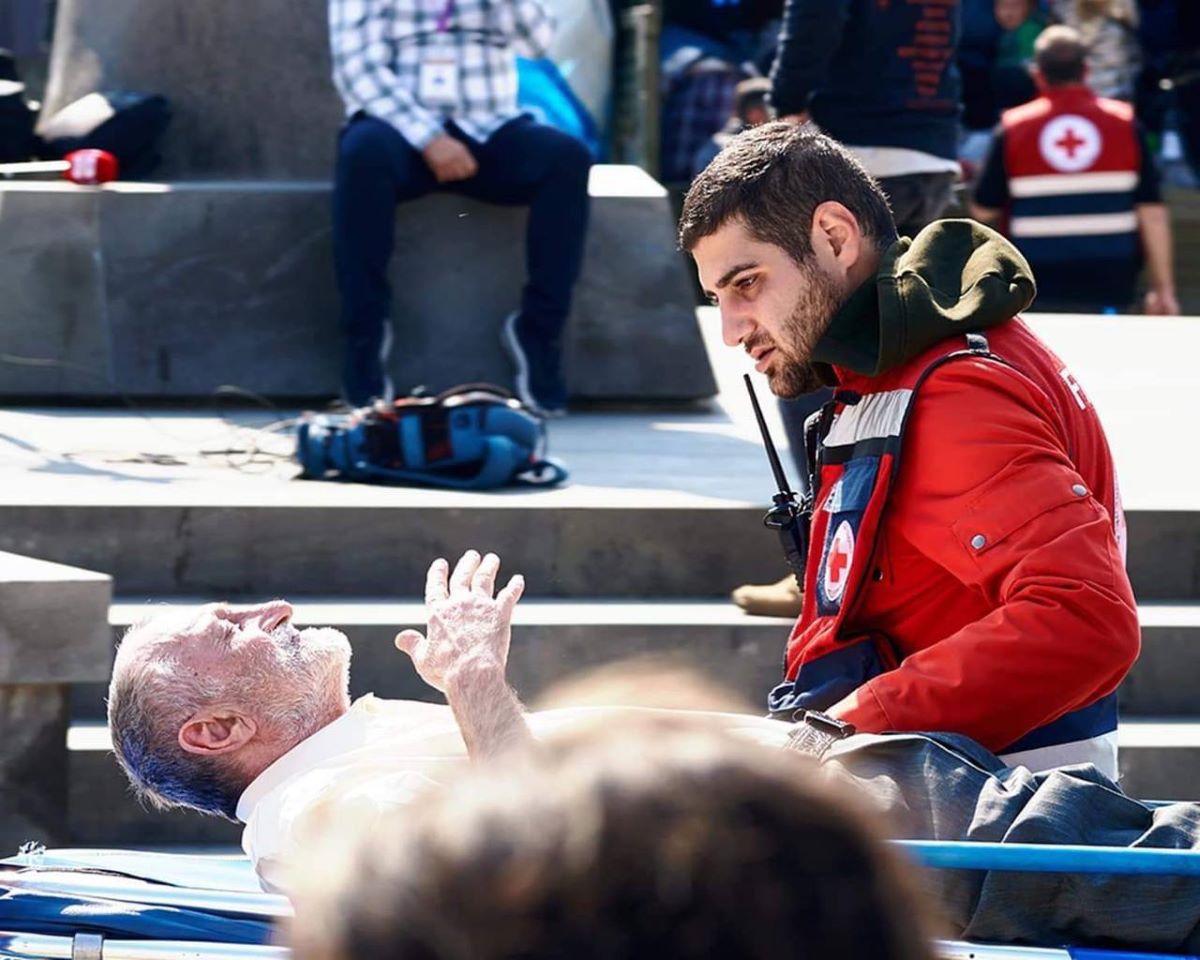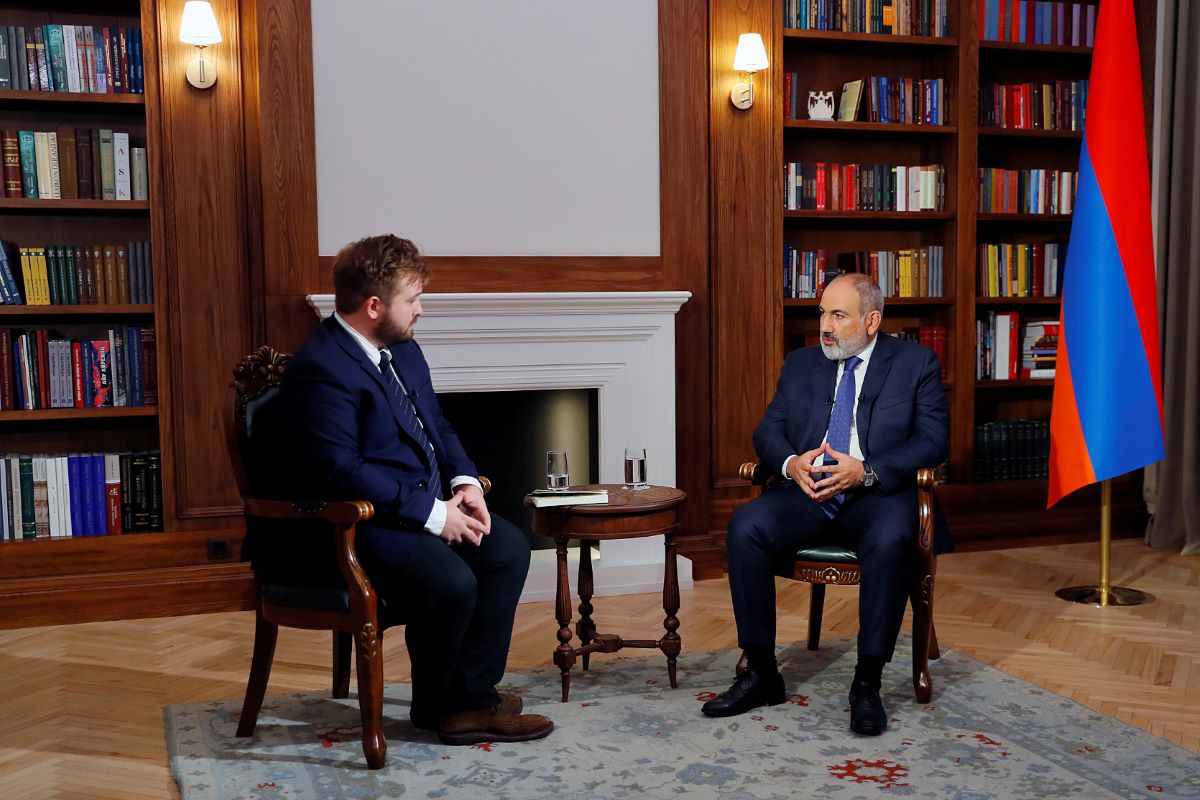"It is not necessary to provide security only with the army" - Pashinyan
Pashinyan’s interview with the Wall Street Journal
The main questions of the Wall Street Journal correspondent in his interview with the Armenian Prime Minister concerned the probability of a full-scale war, the possibility of establishing peace in the region, and unblocking roads. Nikol Pashinyan once again reiterated his position to start an era of peace in the region. And this time he talked about a concrete plan, with open borders between the countries of the region, political dialogue, and the establishment of economic and cultural ties. The idea is to form ties “where the safety of the other somehow becomes important for you, and your safety also becomes important for the other, because otherwise there may be economic risks and political risks.”
He also stated: “Look, there’s no mention of weapons here, but this is an important security component.” The Armenian Prime Minister said that it is wrong to mean only army and weapons by the word security. He gave an example to justify this idea: there are countries that have no problems with weapons but have a security problem, and there are countries that have problems with weapons but have no security problems.
Pashinyan suggests making the region as manageable and predictable as possible in terms of security:
“The approach that we have to find allies somewhere, bring weapons and shoot at our neighbors, that is not our approach. Of course, we have fears that our neighbors will shoot at us. Those fears also need to be managed. But on the other hand, I think that any modern country should and has the right to have a modern army, it has the right to develop its armed forces, it has the right to meet its security needs with this component as well. But the meaning of my answer is that our understanding is not that it is necessary to provide security only with the army.”
Following are other important points from the interview of the Armenian Prime Minister.
- “France to help protect Armenia’s skies”. Signing of documents in Paris
- Meeting in “3+3” format. Opinion from Yerevan: “There are risks, no benefits”
- Turkish and Azerbaijani Armed Forces exercises near Armenia’s borders. Is a new escalation possible?
How to avoid a full-scale war
“We hope that in the near future the agreements reached at the quadrilateral meeting in Prague on October 6, 2022, at the trilateral meeting in Brussels on May 14, 2023 and at the trilateral meeting in Brussels on July 15, 2023 will be formalized, will be reaffirmed and become the basis for the peace treaty.
I want to remind you of those agreements.
The first principle is that Armenia and Azerbaijan mutually recognize each other’s territorial integrity.
The second principle is that the delimitation process between Armenia and Azerbaijan should take place on the basis of the 1991 Alma-Ata Declaration.
When we say that the delimitation of the borders should take place on the basis of the 1991 Alma-Ata Declaration, we mean that state maps existing at that time should be taken as the basis for border delimitation.
And the third principle is that the opening of roads in the region, including the opening of roads and railways of Armenia and Azerbaijan for mutual and international trade, should take place on the basis of the principles of sovereignty, jurisdiction, equality and reciprocity of the countries.
These principles are practically agreed upon, and it remains to conclude a peace treaty based on these agreed principles and move forward.”
Pashinyan’s interview with the Wall Street Journal
What disappointed the allies
“In May 2021 and September 2022, Azerbaijan carried out aggressive actions against Armenia and occupied territories. The Collective Security Treaty and the Charter of the Collective Security Treaty Organization clearly state the actions to be taken when aggression against a member state occurs.
What was described did not happen and, of course, it is disappointing for both the Armenian government and the Armenian public.
Also, we have a bilateral agreement with Russia in the field of security, and the actions described in that agreement also did not take place, which also raised very serious questions among both the Government and the public.
As for the relations with other partners, I will be more honest if I say that these situations, in fact, led us to a decision that we need to diversify our relations in the security sector. And we’re trying to do that now.
I have already said that, unfortunately, we have not seen the advantages in the sidelines of the cases I have described.
In general, after the failure of the peacekeeping contingent of the Russian Federation in Nagorno-Karabakh, many questions arise and these questions are legitimate, because by saying failure I mean that it is a fact that the peacekeeping troops of the Russian Federation were unable or unwilling to ensure the safety of the Armenians of Nagorno-Karabakh.”
“Crossroads of Peace” – new idea from Armenia
“We already agreed at the last Brussels meeting and which was expressed in the July 15 statement of the President of the European Council, Charles Michel, the opening of regional communications should take place on the basis of countries’ sovereignty and jurisdiction.
Should the western regions of Azerbaijan have a transport link with Nakhichevan, including through the territory of Armenia? Yes of course. Can the Republic of Armenia use those same routes, for example, to provide a railway connection between its different parts? Yes, of course. In that case, can Azerbaijan use the transport routes of Armenia for international trade? Yes, of course. Should Armenia have the opportunity to use the roads of Azerbaijan for international trade? Yes, of course. Should international trade participants have the opportunity to trade with Turkey, Iran, and Georgia through the territory of Armenia as a global trade route? Yes, of course.
And we make this proposal, we are ready for this solution, we call this proposal “Crossroads of Peace” and we invite all our partners to make this project a reality together.”
Pashinyan’s interview with the Wall Street Journal
The future of the 100,000 people who have been displaced from NK
“In the short term, our task is to meet the most urgent needs of our compatriots who have become refugees. In the medium term we want them to have decent opportunities for living.
Our approach is that if they do not have the opportunity or desire to return to Nagorno-Karabakh, so we should do everything for them to stay, live, and create in the Republic of Armenia.
Of course, what that future will look like largely depends on what proposal Azerbaijan will make to them, what position it will take, what conditions Azerbaijan will create. And in this regard, will the international community encourage it and what will it support?
But also, taking into account the fact of ethnic cleansing, starving people [during the blockade from December 12 last year until hostilities on September 19, 2023], in fact forced displacement, very great efforts should be made so that the Armenians of Nagorno-Karabakh would have the desire to return there, if the possibility of this realistically exists.”
Did Russia betray Armenia? Historical context
“In historical context I would not so much emphasize the relations between Armenia, the Armenian people and Russia, as I would emphasize the relations between Armenia and Turkey or between Armenia and the Turkish-speaking peoples of the region, or rather, Armenia’s relations with Turkey and Azerbaijan. Here are all the questions and here are the answers to all the questions.
And I submit that we should work, first of all, to improve our relations in our region, and with whom we have good relations, to make those relations better. I mean Georgia and the Islamic Republic of Iran, and create those relations and try to move forward step by step with those countries with which relations are strained or there are no relations.
Much depends on to what extent we will be able to formulate regional interests, because when there are no formulated regional interests, tensions begin to arise between the interests of sovereign countries, which, if not managed, turn into wars.
I cannot say what that content will and should be like, because it can only be the result of collaboration and joint work.”
Follow us – Twitter | Facebook | Instagram
Pashinian’s interview with the Wall Street Journal










